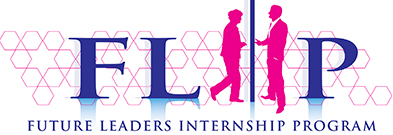While technological advancement and innovation open up possibilities, as well as brand new developments, they can also cause a fair bit of concern among new entrants to the workforce.
Automation appears to be quickly replacing jobs in industries across the board and a somewhat paranoid “rise of the robots” narrative seems to be on the minds of many people these days. This could cause panic, as well as doubt, with regards to the direction of careers in the near future.
If you worry about your livelihood when confronted by digital disruption and shifting socioeconomic landscapes, you’re probably not alone.
However, with the right focus on technical skillsets, plenty of ways to remain relevant can still be found.
UX Design
These days, grabbing customer attention should happen online. It’s where so many people spend a large portion of their waking hours and, in our seemingly ‘always on’ societies, being connected to the internet appears to have become more of a necessity rather than a luxury. It’s a transformation that we might forget happened quite recently, especially when we look around us at advances in developments like e-commerce, online retailing, digital marketing and social media marketing.
This is why UX Design (creating products that provide users with meaningful and relevant experiences) has become one of the most crucial parts of the formula for success for so many online businesses. From piquing interest visually and making website/app navigation more intuitive, consumer attention, as well as behavioural management, can all have strong connections to the domain of UX Design.
Analytics
Digital transformation also relies heavily on the progress that has been made with regards to the analyzing of data through technology. With Big Data, businesses can source for data related to their customers, processes, workers and industry trends. Learning how to harness this data in the most effective way is becoming important to many businesses.
Machines may be able to collect raw data more efficiently, however, people still have a part to play in properly understanding and presenting data. They are also involved in the relevant implementation of data that has been collected and analysed so that it can be put into action. The demand for new roles to be filled such as data scientists should also be an expected outcome of this move towards more data-oriented operations.
Cybersecurity
The digital economy has a reliance on robust systems and, with high-profile hacking cases turning up in the news, cybersecurity that is in line with online safety standards is a priority. As our social lives become even more interconnected through online components and platforms, the possible ramifications of malicious activities and threats can become even more far-reaching.
Organisations have a need for professionals who are able to keep their business data secure. This could even be called a high priority need and, as such, learning and developing skills related to cybersecurity, such as the use of antivirus software and advanced firewalls as well as solutions that protect people’s identities online, can make a whole lot of difference to the lives and careers of young talent.
Mobile expertise
Smartphone users that access online platforms now outnumber the users of desktops, by approximately 51% vs 42%. The digital native Generation Z is set to make up roughly 40% of all consumers by 2020. This means that businesses might want to think about fine-tuning their marketing and operations work, as well as product or service offerings, gearing them towards a mobile consumer market. As companies work to adapt their strategies towards a mobile-first approach where comms, content and customer journeys are all optimised for the mobile experience, individuals who are mobile-savvy can enjoy lucrative career paths.
Creative Thinking
One of the most important things human beings should do is differentiate themselves from machines. Creativity could be considered an evergreen skill that can help you secure your future career and doesn’t necessarily relate to a specific device or piece of software.
Creative thinking may be your most effective weapon against the disruption brought about by automation. Technology changes rapidly and specialised skill sets, as well as many technical tasks, become obsolete. Companies are beginning to invest heavily in creative, versatile workers who are able to think on their feet and stay flexible through different phases of technological progress. Learn to put pieces together, adapt to oncoming trends and offer tangible tactics that help organisations innovate more effectively.
While technical skills are great for finding a footing at work, your ability to adapt, shift and move forward when confronted by disruption can be very important for a successful career. Internships in Malaysia are available and they consist of many of these skillsets. However, you have to be committed and have the right mindset in order to persevere and develop a reputation for being a trustworthy, promising and versatile talent.










